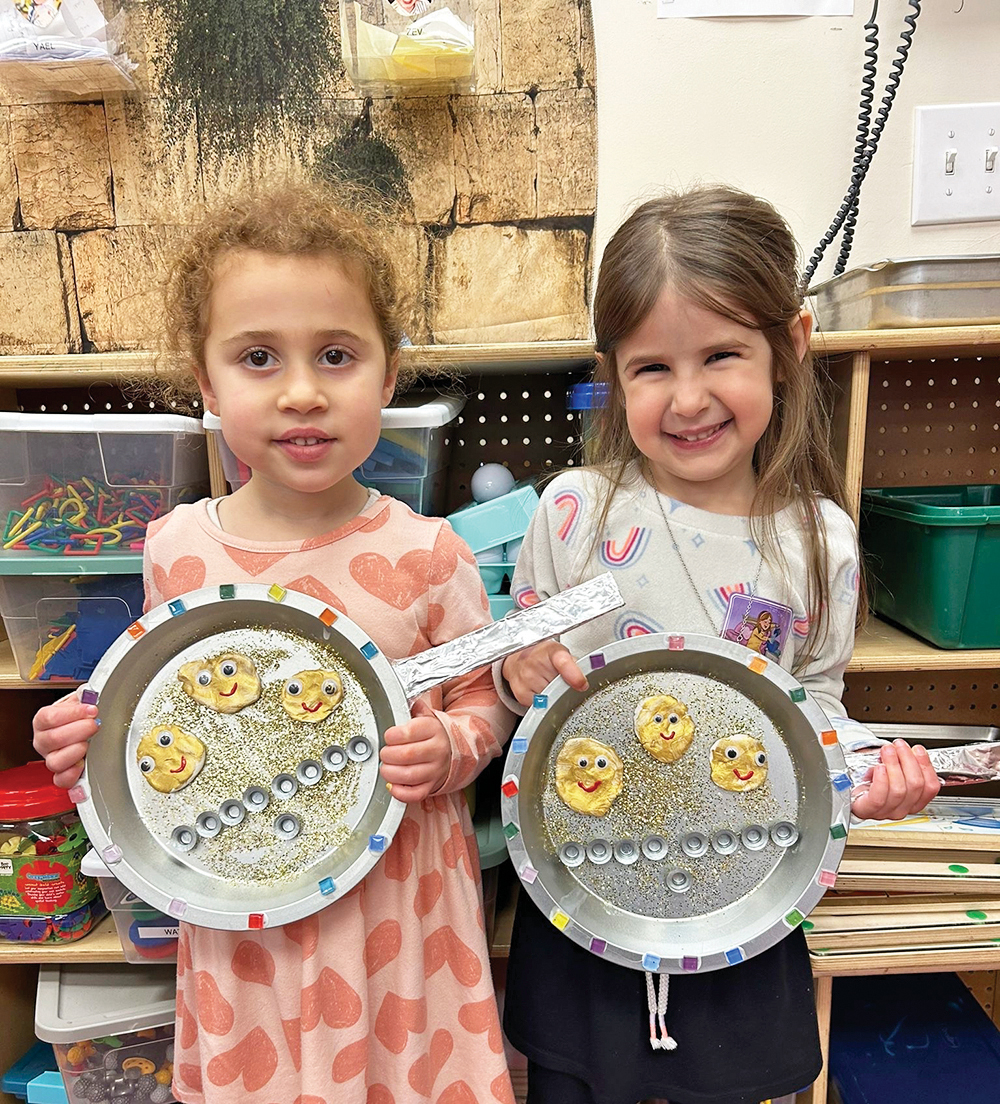(Courtesy of Project SARAH) As we move closer to the beginning of a new year, we begin our yearly journey of introspection and efforts to improve ourselves from the year before in numerous aspects of our lives. One of these areas of focus may be in cultivating an environment of growth and safety for our children.
Given the nature of our work, we know that too often the abundant, unsupervised playtime during holidays can leave children vulnerable to inappropriate interactions. As the statewide program serving Jewish families impacted by abuse, and as leaders in providing culturally sensitive abuse-prevention education in schools, camps and youth groups, Project SARAH is here to help you learn about risk factors so that you can keep your loved ones safe.
Current leaders in the field of child sexual abuse note that in the majority of cases, the victim knows their abuser and frequently it is a family member (Lopiansky, et al. 2017). A study from last year (Rosenbach, et al, 2023) found that over two-thirds of frum female sexual abuse victims (68%) were abused from someone within the family. Despite this troubling information, there is plenty we can do to help our children stay safe—over busy holidays, family gatherings and all year round.
Many of the pointers below reflect those that Project SARAH shares with schools, shuls and camps, which are informed by the Magen Yeladim International Institute and Safety Kid Program, founded by Debbie Fox, LCSW. Fox advocates for “clear protocols”—both in school-based programs and within the home and community setting.
One of the most effective ways to protect our children involves fostering a culture of safety in our homes and greater communities (Lopianksy, et al, 2017). This starts with promoting dialogue around safety, risks, and potential red flags. This empowers children, adolescents and adults to speak up for themselves and others if they observe or experience something outside of the norm. It’s hard to imagine a clearer path to safety than preparing youth to securely identify their personal boundaries—and to feel entitled to remove themselves from an unsafe situation.
Enhancing the safety and well-being of children during holiday gatherings and beyond is critical and doesn’t have to be complicated. Informed by Rabbi Aharon Lopiansky’s article on this topic, Project SARAH offers the following practical precautions:
- Make Frequent Checks During In-Home Playdates a Routine Occurrence. Whether passing through a room while completing household tasks, offering a plate of snacks, or casually asking questions about the game everyone is playing, taking regular opportunities for a quick scan is a good way to help keep kids’ behavior in check—and alert you to any signs of potential trouble.
- Establish Clear Rules for Visitors—Especially Those Staying Overnight or for Long Hours. For example—keep all doors unlocked, possibly even ajar, wherever children are spending time; encourage children to invite a small group of peers rather than spending one-on-one time, etc. Consider whether any (or all) of these suggestions may work well year-round in your home and family.
- Maintain a “Middle Ground” Approach to Vigilance. As safe as “helicopter” parenting can feel to adults, children often experience it as overbearing—and might withdraw. To keep that connection strong, aim for being alert and involved. Ask for details of a planned playdate—and offer follow-up questions when your child returns home from shul about where they spent their time, with whom, etc.
- Search Out Opportunities to Build Comfort Discussing Uncomfortable Topics as a Family. This might include events and experiences that bring up confusion, or even upsetting emotions and thoughts for your children. These conversations could be a passing comment, lasting hardly a minute or longer, depending on the age and nature of each child.
- Deepen Your Child(ren)’s Understanding of Personal Boundaries. Examples may include teaching or modeling appropriate ways to play with peers on the playground or practicing how your child can verbalize his or her own preferences of physical contact with family members. We can help children develop their own inner guide or trust of their intuition by naming an “uh oh” feeling or “wiggling in the belly” sensation as a signal to themselves.
- Model Respectful Relationships With Others, and Yourself. Despite the chaos and busyness of the holiday preparation and observance, let us find room to be mindful in how we interact with other family members—and how we speak to ourselves. When we make a mistake, can we practice showing grace to ourselves by taking a deep breath and handling the situation from a responsive, rather than a reactive place? There is no better way to teach children how to treat themselves and others with respect than by modeling this behavior ourselves.
It’s important for families to tailor their safety measures to fit their unique needs and circumstances, while prioritizing open communication and proactive prevention efforts. Keep in mind, the goal is not to go overboard and create emotionally sterile environments that hinder children’s development. Home life and family gatherings should be associated with warmth and pleasantness, promoting healthy development and creating wonderful family memories.
Wishing everyone a sweet and safe New Year!
For more information about Project SARAH’s work or to coordinate a prevention training presentation, please reach out to us. Project SARAH is a program of the Jewish Family Service of Clifton-Passaic.
Website: https://projectsarah.org
Phone: 973-777-7638 ext. 300 (ext. 301 for outreach)
Email: [email protected]
Harav Aharon Lopiansky is rosh yeshiva of the Yeshiva Gedola of Greater Washington. The rav is renowned for connecting with many communities and understanding the great range of challenges faced in our generation.
References: Lopiansky, A., Berman, Y., & Eisen, E. (2017). Child sexual abuse in the frum community – An overview. Dialogue, 7, 10-76.
Rosenbach, N., Salamon, M. J., & Kirschner, E. (2023). Intra verses extra familial sexual abuse in the Orthodox Jewish community













